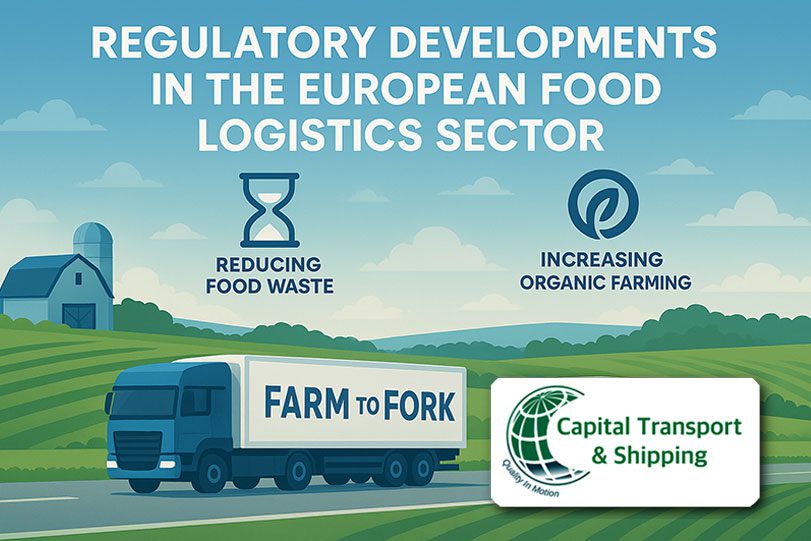- By admin
- May 30, 2025
- Continental, Logistics, Transport
The European food logistics sector is transforming, driven by evolving consumer preferences, technological advancements, and regulatory changes. This dynamic landscape presents numerous opportunities for stakeholders across the supply chain.
📈 MARKET EXPANSION AND COLD CHAIN DEMAND
The European food cold chain logistics market is projected to reach €65.89 billion in 2025, with expectations to grow to €101.24billion by 2030, reflecting a CAGR of 8.97%. This growth is fuelled by increasing demand for perishable goods and the need for efficient temperature-controlled storage and transportation solutions.
Outsourced cold storage capacity in Europe is anticipated to grow at 5–6% annually, supported by structural drivers such as changing consumption patterns and the rising demand for cost-effective frozen and chilled products.
🔄 CONSOLIDATION AND INVESTMENT OPPORTUNITIES
Despite significant mergers and acquisitions over the past decade, approximately 40% of cold storage capacity remains with independent operators. This presents ample opportunities for further consolidation, especially in regions like Southern, Central, and Eastern Europe.
Investors and larger logistics firms can capitalize on this by identifying under-the-radar independents with strong local relationships and potential for capacity expansion, ideal for platform building or bolt-on acquisitions.
🌐 TECHNOLOGICAL ADVANCEMENTS AND SUSTAINABILITY
The integration of advanced technologies is reshaping the food logistics landscape. Innovations such as battery-free, stretchable, and autonomous smart packaging are emerging to enhance food freshness monitoring and extend shelf life, contributing to sustainability efforts in the food industry.
Additionally, the professionalization of customer needs and service standards is driving cold storage operators to invest in capabilities like certifications, operational flexibility, and real-time data transparency to meet heightened expectations.
🌍 REGULATORY CHANGES AND TRADE DYNAMICS
Regulatory developments are also influencing the food logistics sector. The European Union’s “Farm to Fork” strategy aims to make food systems fair, healthy, and environmentally friendly, impacting logistics operations through goals like reducing food waste by 50% by 2030 and increasing organic farming.
Furthermore, recent agreements between the UK and EU have eased border checks for food exports, potentially reducing costs and boosting trade.
🚀 CONCLUSION
The European food logistics industry is poised for substantial growth and innovation. Stakeholders who adapt to technological advancements, pursue strategic investments, and align with evolving regulatory frameworks will be well-positioned to thrive in this dynamic environment. Contact us today to learn how our advanced cold chain logistics services can enhance your supply chain.



